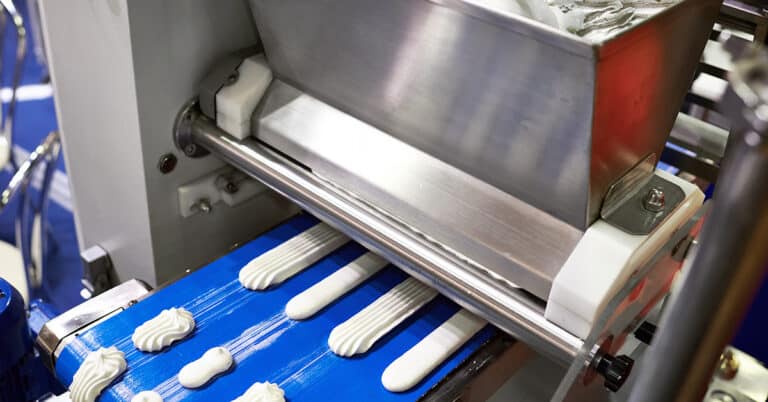What is smart manufacturing? It is a set of technologies and approaches to manufacturing designed for flexibility, agility, adaptability and efficiency. Smart manufacturing incorporates digital technology, interconnected and interoperable systems, computer integrated manufacturing and a cross-trained, flexible technical workforce to achieve unprecedented production responsiveness to demand levels, supply chain optimization, improved sustainability and more efficient overall production.
Adopting the digital transformation of smart manufacturing
The integration of digital technology has transformed the manufacturing sector in much the same way the assembly line did more than a century ago. With advanced data collection and analysis, manufacturers have more insight into their processes than ever before. This has led to significant developments in terms of maintenance in particular, with enhanced information gathering leading to greater efficiencies. Adapting to this new landscape means manufacturers must understand the principles behind smart manufacturing and how it can help them.
Common smart manufacturing technology
Smart digital manufacturing relies on a broad range of technology to deliver its benefits. Common technology includes:
- Artificial intelligence: Artificial intelligence, or AI, facilitates more efficient predictive maintenance by analyzing equipment performance and operating data and identifying potential failure indicators. In addition to alerting technicians to potential maintenance issues with unprecedented speed and effectiveness, AI can also help recommend and make operational adjustments to maximize efficiency and extend the time between maintenance events.
- AR/VR: Augmented reality and virtual reality (commonly referred to as AR/VR) are improving maintenance operations, collaboration and efficiency for manufacturers, primarily through the use of wearable technology such as glasses or goggles. AR/VR can provide tutorials and walkthroughs for maintenance technicians, including virtual assistance from off-site experts. This technology also enables more efficiency training and collaboration across facilities.
- Blockchain: As part of smart manufacturing in Industry 4.0, blockchain is impacting manufacturing by adding transparency and security to areas like supply chain monitoring, identity authentication, parts verification, engineering documentation, asset tracking and more.
- Digital twins: Industry 4.0 smart manufacturing technology enables the use of digital twins: realistic, identical simulations of parts and products that can be interacted with and manipulated just as the product itself would be. Digital twin technology enables real-time collaboration between engineers or designers at different facilities and can also aid in maintenance troubleshooting and training.
- Edge computing: Edge computing combines the power of massive data collection to track and monitor equipment performance and health, with the expertise of equipment operators and other frontline personnel. With edge computing, decisions are made at the point of data collection, leveraging the power of a central processing system to enable those closest to the process itself to take action.
- Predictive maintenance: Smart manufacturing and engineering facilitates effective, efficient predictive maintenance through the use of sensors, data analytics and unprecedented insight into the performance of equipment, using this information to make more proactive assessments of maintenance needs. In the smart factory, predictive maintenance occurs exactly when needed, minimizing or eliminating unplanned downtime while maximizing resource efficiency.
- Industrial Internet of Things (IIoT): Through the use of sensors and advanced networking capabilities, today’s manufacturing machines communicate among themselves as well as with operators. This enhances automation and provides deeper insights into performance.
Key elements of effective smart manufacturing
- Data integration: Smart manufacturing and the smart factory are built on the collection and analysis of vast swaths of data and equipment performance metrics. In order to take full advantage of smart manufacturing technology, all data and analytics should be integrated into all areas of operations, enabling more effective decision making from design to production to fulfillment.
- Analytics and visualizations: With the massive amount of data available, stakeholders as well as those on the forefront of operations must be able to make sense of analytics and use the information at hand to make fast, effective and informed decisions. Data analytics helps to separate signal from noise and elucidate the most relevant information, while visualizations can facilitate easier interpretation and more effective action.
- Empowering skilled technicians: Like any facility, a smart factory powered by smart manufacturing technology is still only as effective as its people. Smart manufacturing requires skilled technicians who are able to make use of the information at their fingertips to make the right decisions that will keep the facility running more efficiently than ever. Technicians must often upskill and undergo additional training in order to adapt to the smart facility, but the institutional knowledge held by those with decades of experience means that they are critical to the ongoing success of the organization.
Benefits of smart manufacturing
Smart manufacturing offers a number of benefits for manufacturers, including:
- Efficiency: From maintenance optimization to quality assurance to supply chain support and beyond, the data, analytics and insights that smart manufacturing provides are proving invaluable in improving the efficiency of facilities.
- Reliability: In today’s fast-turnaround world of manufacturing with tight margins and immediate needs, the ability to deliver as promised is paramount in ensuring the ongoing success of a business. Manufacturing delays can mean missed deadlines and missed opportunities for sales, cutting into the bottom line and negatively impacting the reputation of the business. Smart manufacturing helps reduce or eliminate these issues by improving QC, identifying maintenance issues earlier and enabling supply chain flexibility.
- Resiliency: In the wake of the COVID pandemic, supply chain uncertainty remains a key concern for manufacturers. The massive disruptions of 2020 remain a concern as organizations continue to recover and plan for the future. Smart manufacturing is built on the core tenets of flexibility and transparency, with concrete benefits including more supply chain options and a broader range of capabilities among maintenance personnel.
- Profitability: As smart production technology becomes increasingly accessible, more and more organizations are adopting it, meaning that those who take a “wait and see” approach run the risk of losing their competitive edge. Building a smart factory can begin paying itself back almost immediately through improved productivity and operational efficiency, resulting in increased profits and a more favorable bottom line.
- Quality: Smart factories can enhance the overall quality of what they produce. This is because automation has the ability to adjust on the fly to changes without missing a beat. By correcting mistakes automatically, fewer defects come off the line.
- Sustainability: Manufacturers who want to reduce their ecological impact would do well to consider smart manufacturing technology. It helps streamline processes to reduce waste as well as energy consumption, allowing them to do more with less.
- Employee satisfaction: Attracting and retaining highly qualified employees is more important than ever, and smart manufacturing makes this easier. By taking the most stressful and hazardous jobs off their shoulders, smart processes allow workers to focus their attention and skills in other areas where they can use their problem-solving capabilities. This, in turn, helps drive higher rates of job satisfaction and reduces turnover.
With these smart manufacturing trends and principles in mind, you are ready to take the next step in your facility’s productivity and success. Contact ATS to implement predictive maintenance as a first step to a smarter factory.






